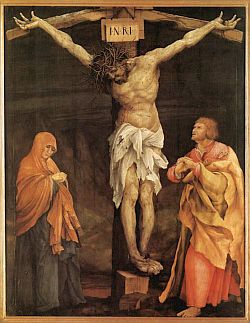 With Holy Week now concluded, I was pondering what appears to be the demise of the local Good Friday service in my community. It used to be that the local churches near my little town would combine to host a Good Friday service, but I heard nothing about it this year. The large (for our area) Pentecostal church of which I am a member does not hold its own Good Friday service, but we did host the traveling community service now and then.
With Holy Week now concluded, I was pondering what appears to be the demise of the local Good Friday service in my community. It used to be that the local churches near my little town would combine to host a Good Friday service, but I heard nothing about it this year. The large (for our area) Pentecostal church of which I am a member does not hold its own Good Friday service, but we did host the traveling community service now and then.
Having grown up in the Lutheran Church, which firmly places Good Friday among the most “holy” dates of the year, the day retains great meaning for me. Since leaving that denomination, I’ve wandered through more traditionally evangelical churches. Almost universally, those evangelical churches have had an indifferent relationship with Good Friday. Scant few held their own Good Friday meeting, and if they did, it always felt more haphazard than those I was used to in the Lutheran Church.
Over the years, even those evangelical churches that DID have a Good Friday meeting seem to have let it slide into oblivion.
I talked with a Roman Catholic last Good Friday evening and we tried to come up with some reason for the evangelical burying of Good Friday, but we came to no good conclusions.
As much as some evangelicals talk about the cross, Good Friday for them is a curious nonevent. And I have no idea why.
Do you have an answer as to why Good Friday has gone missing? What are your thoughts on the downgrade of Good Friday among evangelicals? Have you noticed the date sliding into oblivion in your church or community? Why do think this may be happening (or not happening, depending on your local situation)?
I miss celebrating Good Friday together with other believers. Though I no longer consider myself an evangelical, the majority of my Christian life has been spent in evangelical churches, and I don’t see that changing. I hope someone in evangelicalism starts working to place Good Friday in its proper context for the 21st century.
